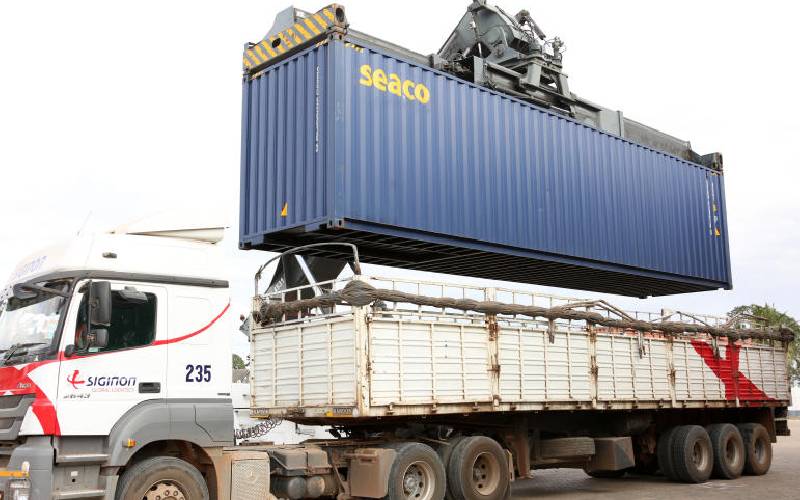×
The Standard e-Paper
Kenya’s Boldest Voice

Heavy machinery loads one of the fourteen containers loaded with primary school laptops at the Siginon yard in Miritini.[Gideon Maundu,Standard]
Logistics and warehousing businesses have emerged as some of the biggest winners during the pandemic.